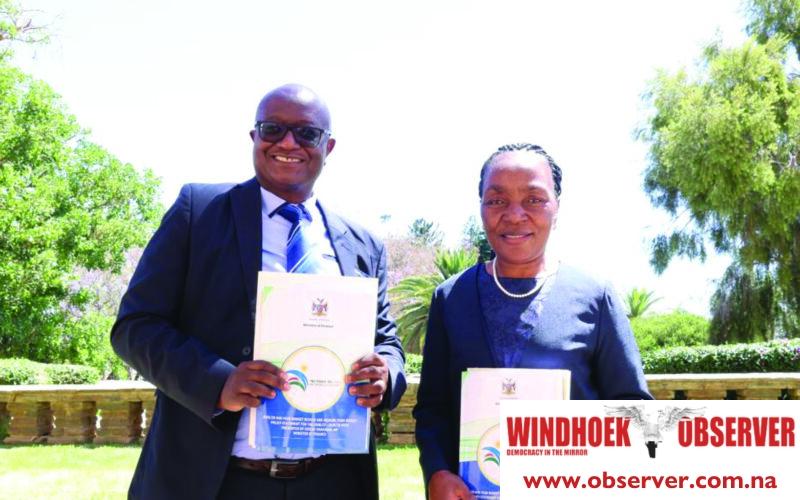Chamwe Kaira
Finance minister Ericah Shafudah has cautioned that if Namibia does not fix its current spending and debt path, the country’s financial stability measures could be badly affected.
She presented the 2025/26 mid-year budget review in Parliament on Tuesday, maintaining the total budget at N$89.4 billion despite slower growth and fiscal pressure.
“The baseline scenario, if left unattended, is highly undesirable and will lead to a serious deterioration of key fiscal anchors,” Shafudah said.
“Urgent actions under economic policy measures and expenditure restraint in the medium term will create a more viable and manageable fiscal path.”
She said by September 2025, total revenue stood at N$36.6 billion, about 40% of the total budget.
However, this was 10 percentage points lower than the same period in the previous financial year.
Expenditure and commitments, excluding statutory payments, reached N$41 billion, which is 39% of the total budget, down from 43% last year.
Shafudah said public debt rose to N$176.3 billion from N$167.2 billion a year earlier. Interest payments increased to N$6.8 billion, up by 6.4% from September 2024.
Meanwhile, government guarantees declined slightly to N$8.1 billion from N$9.3 billion, showing a small improvement in contingent liabilities.
Shafudah said the figures point out the need for fiscal discipline and timely policy action to safeguard financial stability.
She said the government would reallocate existing funds rather than increase spending.
“We remain committed to fiscal prudence and ensuring that resources are directed to the most urgent national priorities,” she told Parliament.
Economic growth for 2025 is now projected at 3.3%, down from the earlier forecast of 4.5%. The slowdown is linked to lower output in diamond processing, cement and copper production, though uranium and gold are expected to perform better.
Inflation remains stable, prompting the Bank of Namibia to cut the repo rate to 6.5% in October to support growth.
The trade deficit narrowed to N$4.5 billion, mainly due to higher uranium and gold exports.
Interest payments are projected at N$14.3 billion, or 16.1% of total revenue.
“The baseline scenario, if left unattended, is highly undesirable and will lead to a serious deterioration of key fiscal anchors,” Shafudah repeated.
The government introduced N$1.2 billion in reallocations to address critical needs.
Education received N$814 million, including N$663 million for tuition and registration fees under the free tertiary education programme and N$151 million for hiring 665 teachers.
Health was allocated N$185 million to recruit 1,537 healthcare workers. The office of the prime minister received N$50 million for the National Emergency Disaster Fund, while the Electoral Commission of Namibia (ECN) got N$30 million for by-election costs.
To fund these reallocations, Shafudah said N$826 million came from underperforming capital projects and N$378 million from savings in unfilled vacancies.
She said Between 2026 and 2029, fiscal policy will focus on job creation, efficient spending and debt stabilisation under the new medium-term revenue strategy and the meridian debt management platform.
Caption
Finance minister Ericah Shafudah and finance executive director Michael Humavindu, before the presentation of the mid-year budget review.
- Photo: Ministry of Finance




